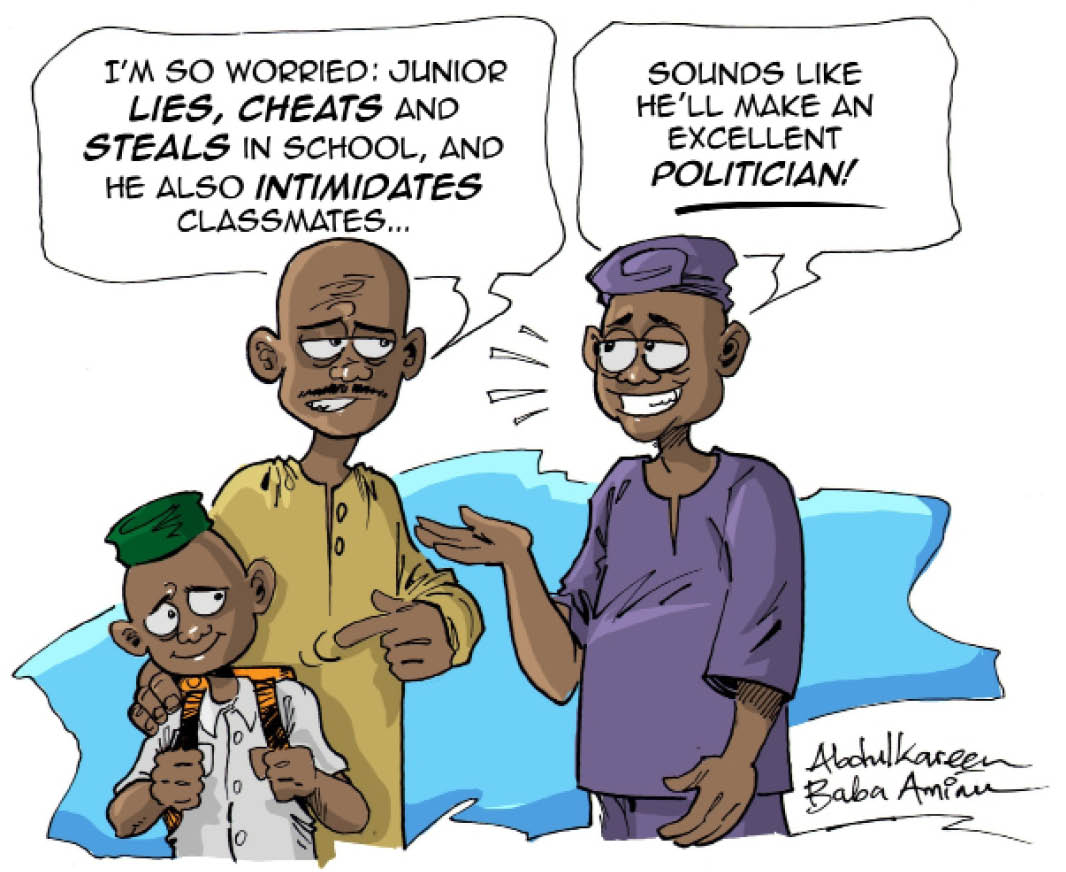This afternoon, just before I sat down to write this piece, I had stopped at a petrol station to fill up my tank. To cut a short story shorter, I spent over N30,000 for something which used to be N8,000 or so. This is not my first rodeo filling up my tank after the new prices, but this incident stood out. Why? For a number of reasons, including the recent misadventure of last Tuesday, where it was reported that the Godswill Akpabio-led Senate, while urging the Nigerian Electricity Regulatory Commission (NERC) and the electricity distribution companies to stop their proposed electricity tariff increment, passed a motion in a manner many considered ridiculous.
Akpabio was reported as having said: “The prayer is that, let the poor breathe, and Senator Mustapha has seconded that the poor should breathe. Those who are in support of the additional prayer that the poor should be allowed to breathe, say ‘ayes’ and those who are against say ‘nay’.” Echoes of laughter followed, and the senators said “aye”, to which Akpabio said, “The ayes have it! The poor must be allowed to breathe.” The online furore was thick as sludge, as even Arise TV’s Rufai Oseni said in outrage: “I don’t know what is so funny about a bunch of guys that got 17 billion while others didn’t get anything. And I don’t know what’s funny about a bunch of guys that are constantly fleecing this country with everything they have or this country has to give to them and I don’t know what’s funny about a bunch of guys that just sit up there and big fat salaries that they don’t know how much and they can’t even state how much.”
One cannot help but stand with Oseni and the many thousands of Nigerians online who expressed disgust at that circus. Elected Nigerian government officials should not make fun of citizens, for no reason at all, ever. And certainly not for problems they caused for innocent Nigerians. It is disrespectful, unprofessional, and counterproductive. It also undermines the public’s trust in the government. When these ill-conceived ‘jokes’ poke fun at those who the ‘jokers’ are supposed to serve, it sends the message that they do not care about the people’s problems (even though we all know this). And am I the only one who feels the whole exercise suggests that they believe they are superior to the citizens?
In addition, making fun of citizens can be seen as a form of bullying. It can make people feel humiliated and powerless, which can have a negative impact on their mental and emotional health. And right now, who in the world feels as downtrodden as a Nigerian? Making fun of citizens can be counterproductive and can discourage people from speaking out about problems, and it can make it more difficult for the government to address those problems. Is that the end game? Because this is not an isolated case: There are many examples of Nigerian government officials making fun of citizens for problems they caused. In 2017, for example, the Minister of Power, Works, and Housing, Babatunde Fashola, made fun of people who were complaining about the lack of electricity in the country. He said that they should “stop complaining” and “learn to live with” the power outages. Wow, right? That’s not all, not by a long shot.
- Insecurity: Bauchi rep raises alarm over heightened killings, kidnapping
- INEC raises alarm over violence in Bayelsa, Imo, Kogi
In 2018, the Minister of Information and Culture, Lai Mohammed, made fun of people who were complaining about the rising cost of living. He said that they should “stop complaining” and “learn to live with” the high prices. These are just two examples of many. When government officials make fun of citizens, it sends a clear message that they do not care about the people’s problems. It is important for elected Nigerian government officials to remember that they are public servants. They are there to represent the people, not to make fun of them. When they make fun of citizens, they are also undermining their own authority. Poetic justice, maybe? Let me not digress.
If government officials want to be taken seriously, they need to stop making fun of citizens. They need to start listening to the people’s problems and working to address them. Only then will they be able to earn the trust and respect of the people they are supposed to serve. Before I forget, in addition to the reasons mentioned above, there are a few other reasons why elected Nigerian government officials should not make fun of citizens for problems they caused.
First, it can lead to violence. When people feel humiliated and powerless, they are more likely to lash out. This can lead to violence against government officials or other citizens. Second, it can damage the country’s reputation. When foreign investors see that the government is not taking the people’s problems seriously, they are less likely to invest in the country. This can have a negative impact on the economy. Finally, it can lead to social unrest. When people feel that the government is not listening to them, they are more likely to protest or take other forms of action. Nobody wants that, not on their watch. A peaceful nation is what we all want.
For all of these reasons, it is important for elected Nigerian government officials to stop making fun of citizens for problems they caused. It is disrespectful, unprofessional, counterproductive, and it can have serious consequences for the country. I’ll wrap this up by presenting an alternative POV: If ordinary Nigerians have tragically become the butt of jokes by the ruling elite, then there are no prizes for which set of people make up the punchline. Same set of people too dim-witted and preoccupied with selfish interests to realise that the joke is on them and their failures, and not the poor citizen they are supposed to serve. After all, he who laughs last, they say, laughs longest.

 Join Daily Trust WhatsApp Community For Quick Access To News and Happenings Around You.
Join Daily Trust WhatsApp Community For Quick Access To News and Happenings Around You.


